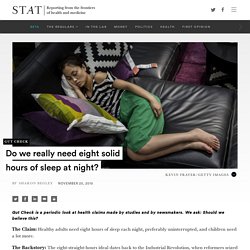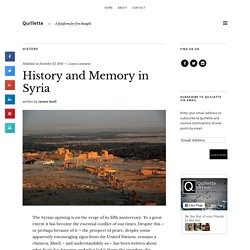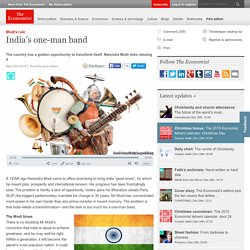

When is the Best Time to Sleep? So many articles have been written about the fact that adults need about 8 hours of sleep per night.

The fact is, that some people may need more or less. The real question should be, WHEN are you getting your sleep! You can get a full 8 hours of sleep but if you went to bed at 2am and woke up at 10am, you will not be in tip top shape. Definitely not compared to if you slept at 10pm and woke up at 6am.
It’s crucial to have not only the right amount of sleep, but to also sleep at the right time. Sleeping is filled with mysteries even to this day. Waking up when you want to wake up and not because you have to is a great feeling! To help you get adequate sleep, don’t do anything too physically or mentally strenuous at least 2 hours before your bed time. Here are a few courses to help you sleep better: Cure Insomnia Hypnosis CourseOvercome Insomnia Subliminal CourseDelta Sleeping Aid Brainwave Course.
Re-reading is inefficient. Here are 8 tips for studying smarter. Want a better memory? Here's what science says you should do. Wouldn't it be great to have a better memory?

To remember things you've read, recall names more easily, and never forget where you put your keys? Sadly, scientists haven't yet discovered a magic pill to help you remember things. And many tools often touted as memory enhancers — like various foods, brain-training games, and calorie restrictions — still don't have enough solid evidence behind them. Vitamin B.S. In 1941, President Franklin Delano Roosevelt summoned hundreds of scientists, doctors, and food manufacturers to Washington, D.C. to discuss a weapon that would help the U.S. win World War II: vitamins.

“There was this idea of optimization: ‘What do we need to do to optimize Americans’ health, to make sure we have enough pep and vigor to get us through this war?’” Said Catherine Price, the author of Vitamania: Our Obsessive Quest for Nutritional Perfection. “There were all these rumors that the Nazis were restricting vitamins in their conquered people’s foods and giving their young men vitamin supplements and basically race-building through vitamins.” Three ideas emerged from the National Nutrition Conference for Defense that still exist today. Four Lessons from “Inside Out” to Discuss With Kids. Since its release last month, Inside Out has been applauded by critics, adored by audiences, and has become the likely front-runner for the Academy Award for Best Animated Feature.

But perhaps its greatest achievement has been this: It has moved viewers young and old to take a look inside their own minds. As you likely know by now, much of the film takes place in the head of an 11-year-old girl named Riley, with five emotions—Joy, Sadness, Anger, Fear, and Disgust—embodied by characters who help Riley navigate her world. The film has some deep things to say about the nature of our emotions—which is no coincidence, as the GGSC’s founding faculty director, Dacher Keltner, served as a consultant on the film, helping to make sure that, despite some obvious creative liberties, the film’s fundamental messages about emotion are consistent with scientific research. The Best Greater Good Articles of 2015. For Greater Good, nuance and controversy defined 2015.

Over the course of the year, we grappled with big public issues like terrorism, racism, and what schools should teach. We tackled “inside baseball” questions about the validity of psychological research and the best ways to measure happiness. We also took on media coverage that we thought misrepresented important research into happiness. And a great deal of nuance came out in stories we’ve followed for a long time.
For years, for example, we’ve reported on research into how wealth affects empathy and compassion, but this year that relationship turned out to be more complicated than previous studies suggested. Don't forget, the science of memory is key to helping students learn. Eight hours of sleep may not be necessary. Gut Check is a periodic look at health claims made by studies and by newsmakers.

We ask: Should we believe this? The Claim: Healthy adults need eight hours of sleep each night, preferably uninterrupted, and children need a lot more. Rakesh Gupta's Shares. 8 Great Hacks to Sleep Better Tonight inc.com Save McDonald’s CEO Don Thompson : Chicago magazine : March 2015 chicagomag.com.

What Makes a Leader? Every businessperson knows a story about a highly intelligent, highly skilled executive who was promoted into a leadership position only to fail at the job.

And they also know a story about someone with solid—but not extraordinary—intellectual abilities and technical skills who was promoted into a similar position and then soared. Such anecdotes support the widespread belief that identifying individuals with the “right stuff” to be leaders is more art than science. After all, the personal styles of superb leaders vary: Some leaders are subdued and analytical; others shout their manifestos from the mountaintops. And just as important, different situations call for different types of leadership. Most mergers need a sensitive negotiator at the helm, whereas many turnarounds require a more forceful authority. The Top 100 New York Times Stories of 2015, by Total Time Spent. Review: ‘Too Much of a Good Thing’ Finds a Dilemma in Our DNA. History and Memory in Syria. The Syrian uprising is on the verge of its fifth anniversary.

To a great extent it has become the essential conflict of our times. Despite this – or perhaps because of it – the prospect of peace, despite some apparently encouraging signs from the United Nations, remains a chimera. Much – and understandably so – has been written about what Syria has become, and what led it there: the murders, the torture, the senseless slaughter, the almost inconceivable devastation. There is no shame in this; it is necessary and I have done more than my fair share. But sometimes this analysis is insufficient. Explicit cookie consent. A YEAR ago Narendra Modi came to office promising to bring India “good times”, by which he meant jobs, prosperity and international renown.

His progress has been frustratingly slow. The problem is hardly a lack of opportunity. Voters gave his Bharatiya Janata Party (BJP) the biggest parliamentary mandate for change in 30 years. Mr Modi has concentrated more power in his own hands than any prime minister in recent memory. The Economist’s editors pick the ten covers that define 2015. EVEN by the standards of the post-9/11 era, 2015 has been a exceptionally tumultuous year.
In 2015 the war in Syria grew more fractious, Islamic State more militant and calculus of the Middle East more incomprehensible. Europe witnessed the largest migrant flows since the second world war, unprecendented terrorist attacks on ordinary Parisians and the continuing rise of Russian belligerence. In America, police violence, gun crime and the social-justice movement reached new heights. Latin America turned away from the populist left, emerging economies screeched to a halt and illiberal fearmongers continued to climb up the polls across the world. Volkswagen was caught fiddling its emissions results, Silicon Valley giants began to lose some of their sheen and Sepp Blatter, the head of football's governing body, came under scrutiny for corruption.
Luck and the entrepreneur, part 1: The four kinds of luck. Aug 14, 2007 In the last few weeks, I've been reading huge stacks of books on the psychology of creativity and motivation -- which is the reason for the relative scarcity of substantive blog posts. Said post situation will be remedied shortly, by a series of posts on -- surprise! -- the psychology of creativity and motivation. But first, to complement my post on age and the entrepreneur from a few days ago, this post begins a series of occasional posts about luck and the entrepreneur. Luck is something that every successful entrepreneur will tell you plays a huge role in the difference between success and failure.
Best of 2015: Top Tips, Insights, & Tricks. Nobody Cares How Hard You Work. As you sink into the couch, or slide onto the barstool, at the end of an exhausting workday, it’s hard not to experience the warm glow of self-congratulation. After all, you put in the hours, cranked through the to-do list; you invested the effort, and got things done. Surely you’re entitled to a little smugness? Sorry, but at the risk of ruining that martini: maybe not. We chronically confuse the feeling of effort with the reality of results—and for anyone working in a creative field, that means the constant risk of frittering time and energy on busywork, instead of the work that counts.
Psychologists have long noticed what’s sometimes been called the “labor illusion:” when it comes to judging other people’s work, we might say we’re focused only on whether they did the job quickly and well—but really we want to feel they wore themselves out for us. Conquering Digital Distraction. 15 best thought-provoking websites. Pakistan’s Endgame in Kashmir. Pakistan’s Endgame in Kashmir By Husain Haqqani Originally published in India Review, Volume 2, No. 3, July 2003.
Altitudes Of Imperialism. Off the Record – The Caravan. Among The Believers – The Caravan. Is Anyone Willing To Take On The Perversion of Islam Caused By The Wahhabi-Saudi Combine? – The Caravan. On 13 November 2015, a series of coordinated militant attacks in Paris shook the world. The attacks, reportedly the deadliest in France since the Second World War, followed soon after many European countries had opened their doors to the traumatised and homeless refugees from Syria and Iraq, many of whom are Muslims.
How They Got Here – The Caravan. NOT LONG AGO, I found myself in a panel discussion on television with three politicians. Talk Of the Town. Haryana’s Decision to Include the Bhagavad Gita in School Curriculum Skews the Idea of Education – The Caravan. India’s Prodigal Daughter Still Without a Home? – The Caravan. July 2015 saw the release of Bajrangi Bhaijaan, a Bollywood potboiler directed by Kabir Khan that earned over Rs 6 billion worldwide. The film told the story of a six-year-old, mute Pakistani girl stranded in India, and the attempts of the titular character played by Salman Khan, to bring her home.
Capital Reporter – The Caravan. The Wealth of Nations – The Caravan. Remote Control – The Caravan. An Unclean Chit – The Caravan. The Tempest – The Caravan. Experiments with Truth – The Caravan. The Cost of Mobile Ads on 50 News Websites. Satya Nadella and Microsoft’s Very Good Day. The Internet's Dark Ages. Forbes Welcome. Welcome. Owen Bennett-Jones reviews ‘The Pashtun Question’ by Abubakar Siddique and ‘The Taliban Revival’ by Hassan Abbas · LRB 25 September 2014. Seymour M. Hersh · The Killing of Osama bin Laden · LRB 21 May 2015. Seymour M. Hersh · The Red Line and the Rat Line: Erdoğan and the Syrian rebels · LRB 17 April 2014. Seymour M. Hersh · Military to Military: US intelligence sharing in the Syrian war · LRB 7 January 2016.
Content Curation by Robin Good. America's oil export ban, explained. America Is Becoming More Liberal. Well, At Least There Was Good Stuff to Read: The Books of the Decade. eBooks. The Timbre - Podcast Reviews & Discussion.